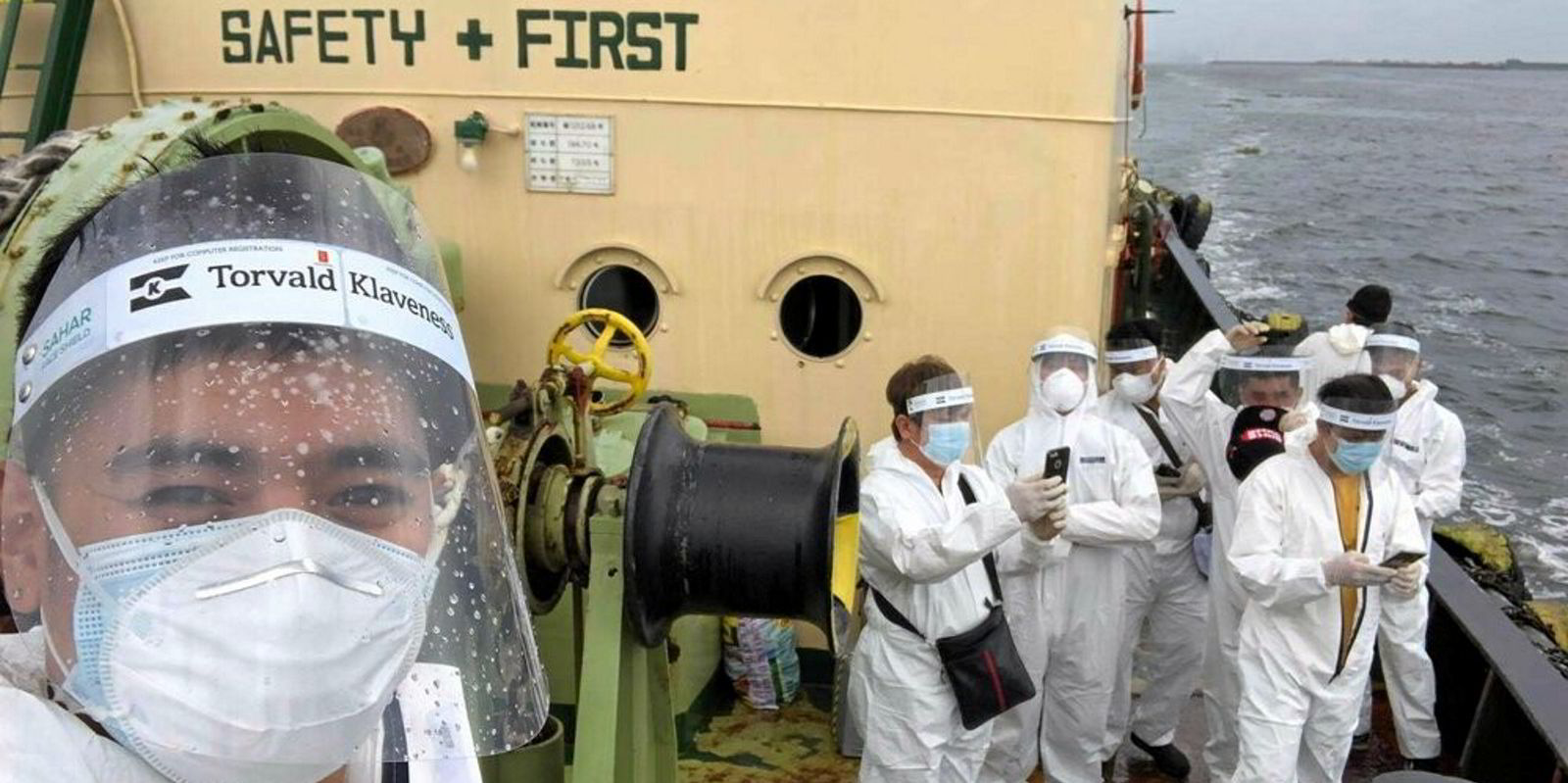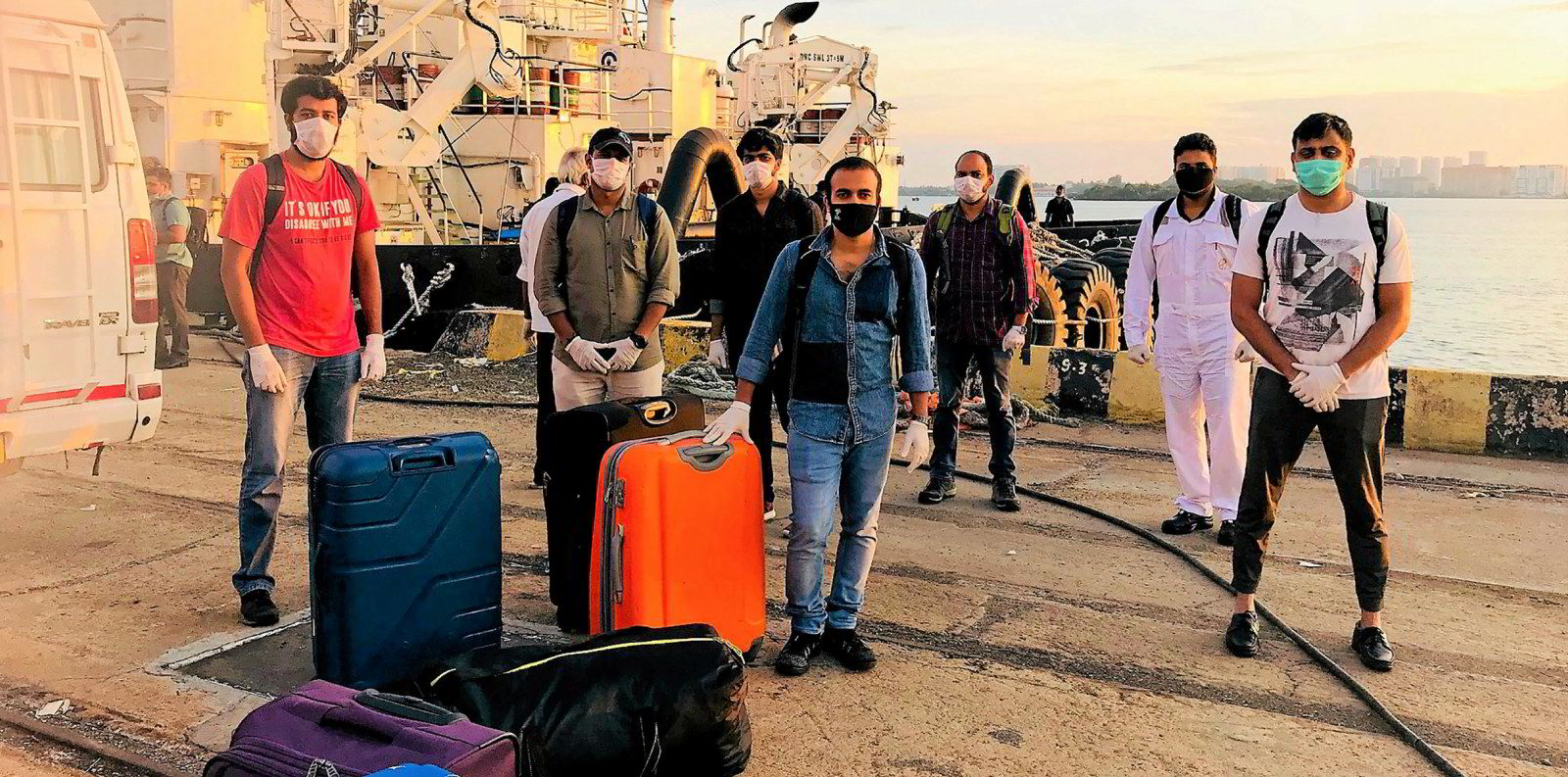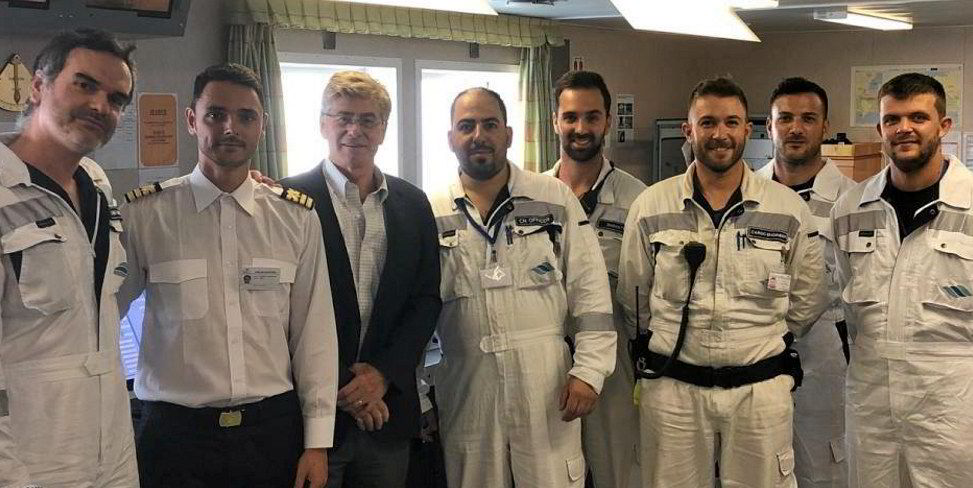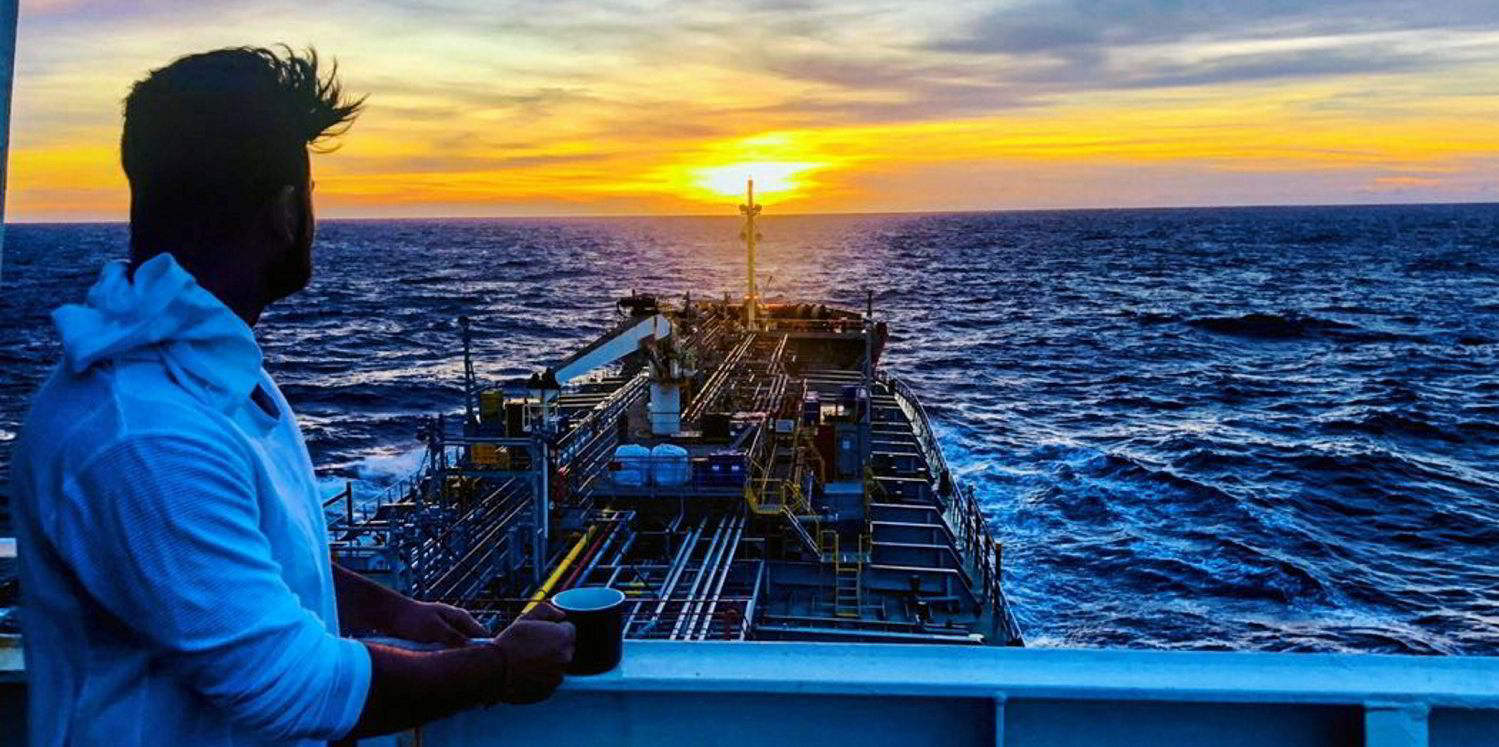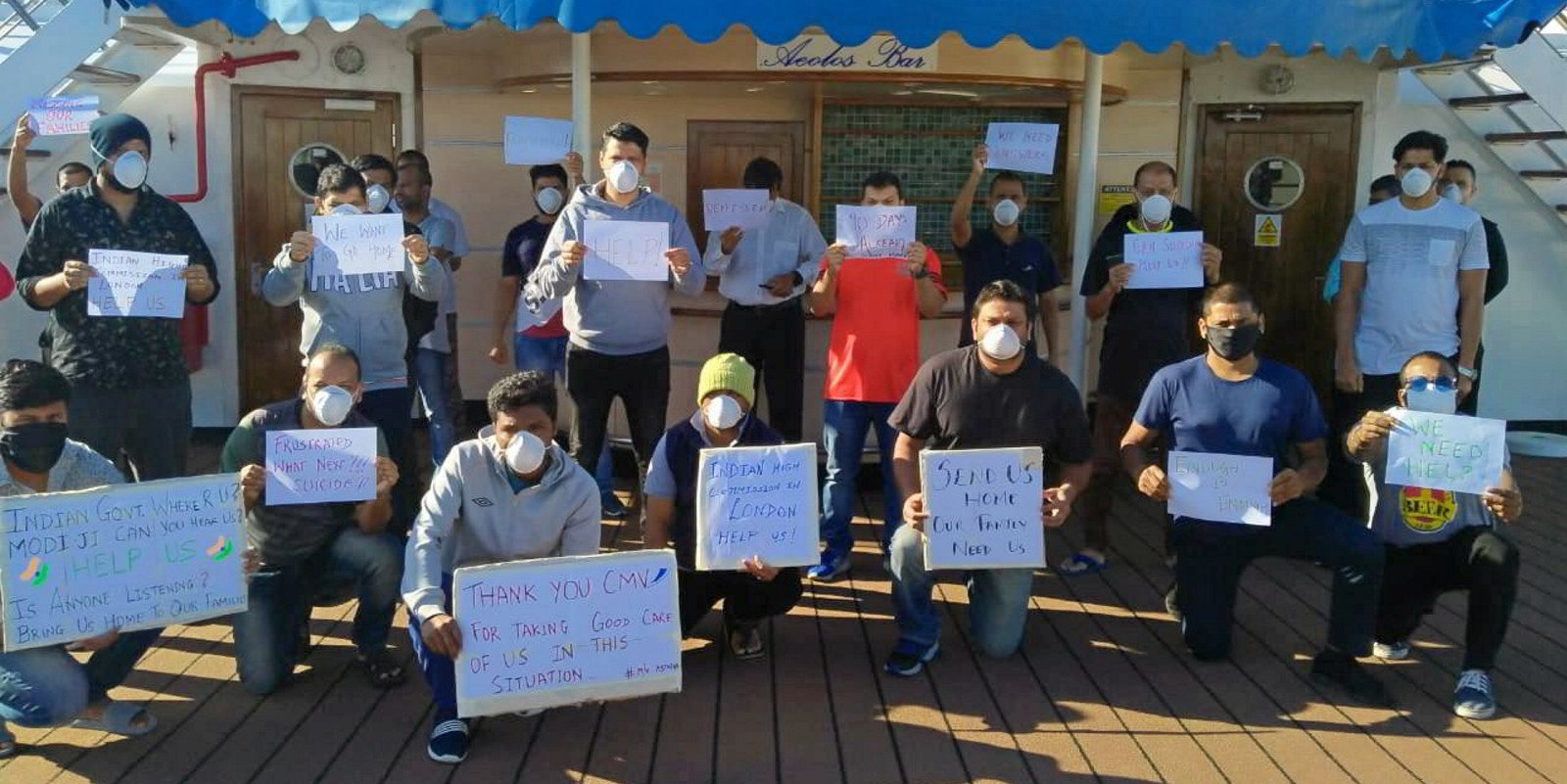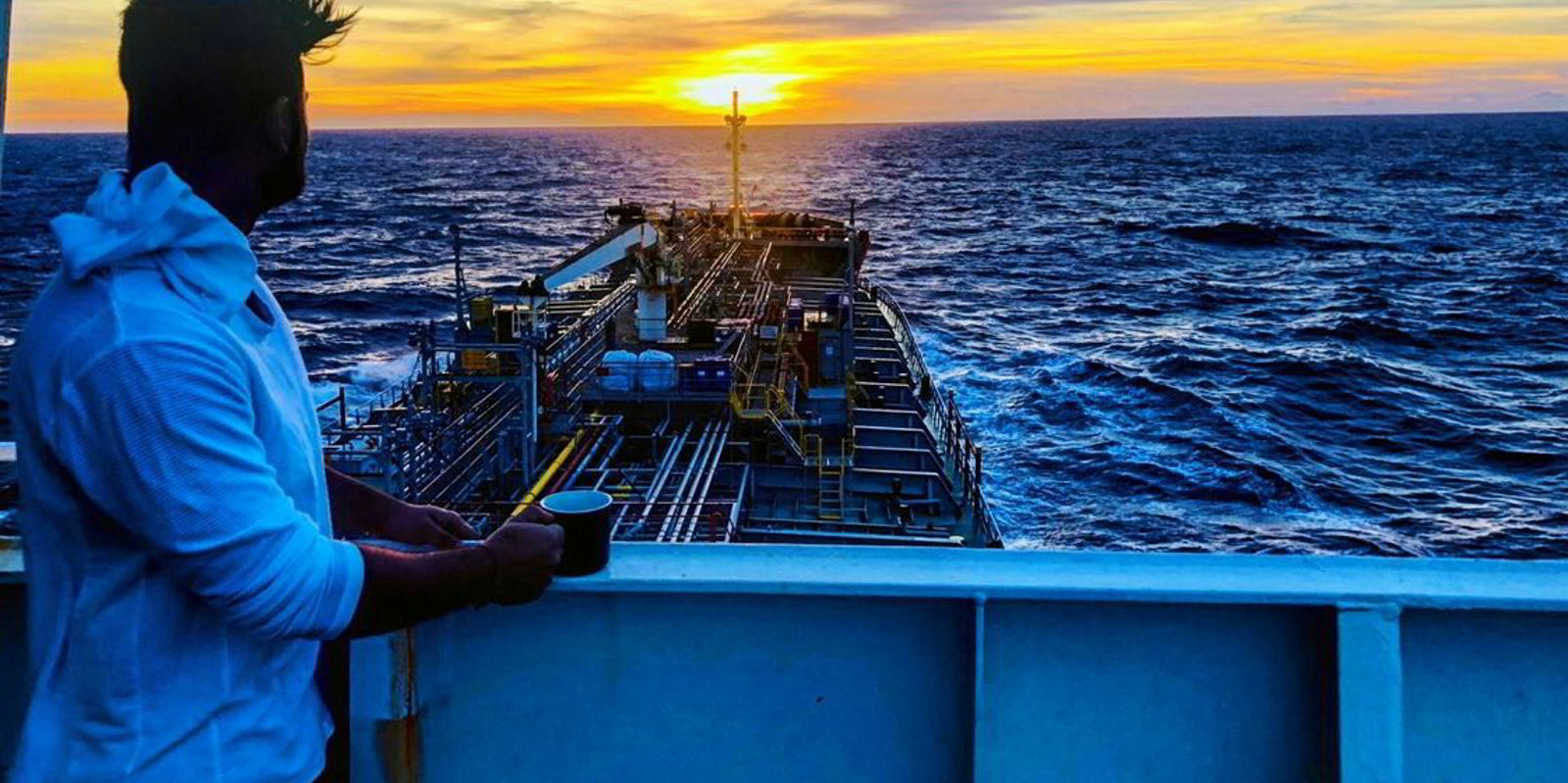The holiday season is approaching fast for much of the world’s population and will be an opportunity for many to spend time with family and friends. But for thousands of seafarers, the ongoing crew-change crisis deprives them even of the hope of being home in time for the holidays.
Many governments have responded to the Covid-19 pandemic by closing their borders and banning seafarers from coming ashore, even for medical treatment in some cases. These restrictions have led to many of the world’s seafarers becoming trapped working aboard cargo vessels well beyond the expiry of the initial contracts they signed up for.
While significant efforts by individual companies, international organisations, industry associations, labour unions, NGOs, and some governments, has improved the situation, the reality of this humanitarian crisis continues.
This is an unacceptable way to treat seafarers — who are the front-line workers of global seaborne trade — as fatigue after extended periods at sea has significant consequences on physical and mental well-being.
Fatigue also increases the risk of maritime incidents and environmental disasters and poses a wider threat to the integrity of global supply chains dependent on safe and reliable maritime transport.
Task force
This is why we — following initial discussions at the Global Maritime Forum’s Virtual High-Level Meeting in October — have established a task force of key stakeholders from across the maritime value chain to develop concrete actions to help resolve the crew-change crisis as quickly as possible.
In our work, we have identified a number of issues that must be addressed.
Firstly, seafarers must be recognised as key workers and treated accordingly by giving them early access to Covid-19 vaccinations.
Seafarers are the key workers that allow global supply chains to continue to operate even during a pandemic
Maritime trade is essential to the well-being of society. Seafarers are the key workers that allow global supply chains to continue to operate even during a pandemic. This has been recognised by the UN General Assembly, which on 1 December adopted a resolution calling for all governments to give seafarers key-worker status. But the key-worker status only helps if it leads to tangible government action, for instance by facilitating international travel and by giving seafarers priority access to Covid-19 vaccinations.
Secondly, high-quality health protocols must be implemented.
One reason for the current crisis are the restrictions on crew changes that many governments have put in place to prevent the spread of Covid-19. To build trust that the removal of such barriers can be done safely, we need to implement high-quality health protocols to ensure seafarers can move safely and securely to and from ships, via airports and other transport hubs.
The good news is the maritime industry has already developed such protocols, which have been recognised by the International Maritime Organization. Unfortunately, these protocols have not been consistently implemented across all relevant jurisdictions or by all relevant stakeholders.
Gold standard
In our discussions, we have identified the Singapore Shipping Tripartite Alliance Resilience (SG-STAR) Fund initiative as a gold standard that we recommend other jurisdictions to adopt to facilitate safe crew changes.
SG-STAR Fund is a collaboration between the government of Singapore, the shipping industry including the International Chamber of Shipping, and seafarer unions such as the International Transport Workers' Federation, that recommend best practices and safe measures in the home country of the seafarer as well as in the country where the crew change will take place.
Thirdly, collaboration must increase between ship operators and charterers to facilitate crew changes.
Companies in the maritime logistics chain often specialise in delivering specific core services, which allows them to operate in a highly efficient manner. But under the current unprecedented circumstances, the nature of the industry also creates challenges.
One such challenge is in the interplay between ship operators and charterers. When a normal crew change cannot be carried out due to government restrictions or a lack of airline connectivity, the ship operator needs permission from the charterer before deviating to another port or delaying departure to allow a crew change.
In many circumstances the ship owners and the charterers have managed to find workable solutions, but there have also been many instances where this has not been the case, leaving the seafarers to pay the price.
We believe that facilitating crew changes is a shared responsibility. Ship owners and charterers should collaborate to ensure that necessary crew changes can be carried out with the least possible impact in terms of cost and delays.
Transparency
The owner should provide the charterer with all relevant information and as much notice as possible on intended crew changes, while the charterer should make all reasonable efforts to accommodate necessary crew changes, including when the vessel has to make a reasonable deviation.
In particular, no charter contracts should contain clauses preventing necessary crew changes from being carried out, as the aggregate effect of such clauses could be a serious obstacle to the safe operation of maritime trade and the protection of the well-being and rights of seafarers.
Next, we must ensure airline connectivity between key maritime hubs.
The disruption of international air travel has reduced the number of flights, causing connectivity issues between major crew change hubs and major seafaring nations. This is an issue that cannot be solved by the maritime industry alone. We need to work closely together with the aviation industry to ensure that sufficient airlift capacity is established between major crew changing hubs and seafaring nations.
Harmonisation
Additionally, the aviation and maritime industries and governments should work together to establish a universally accepted and harmonised framework of standards for the validation of trusted health data for seafarers to facilitate border crossing. Such standards will not only help address the current pandemic but will also ensure long-term resilience in the event of a future pandemic.
We have a shared responsibility to ensure that the current crew-change crisis is resolved as soon as possible
We have a shared responsibility to ensure that the current crew-change crisis is resolved as soon as possible, and that we use learning from the crisis as an opportunity to build a more resilient maritime supply chain.
We commit to take action to resolve the crew-change crisis, based on our position in the value-chain, thereby ensuring the rights and well-being of the seafarers.
We call on our peers and other stakeholders to join us in our efforts, for instance by signing the declaration on Seafarer Well-being and Crew Change that we will be launching at the beginning of the new year.
By joining forces to address the root causes of the crew-change crisis, we can ensure that this holiday season will be the last where so many seafarers are stuck on ships beyond their tours of duty rather than celebrating at home with their loved ones.
Signed:
Graham Westgarth, chairman, V. Group
Jeremy Nixon, chief executive, Ocean Network Express
Alex Hadjipateras, executive vice president of business development, Dorian LPG
Andrew Barker, global operations director, Cargill Ocean Transportation
Andrew Stephens, executive director, Sustainable Shipping Initiative
Captain Belal Ahmed, chairman, International Maritime Employers’ Council
Gerardo Borromeo, chief executive, Philippine Transmarine Carriers
Guy Platten, secretary general, International Chamber of Shipping
Kasper Sogaard, head of research, Global Maritime Forum
Margi Van Gogh, head of supply chain and transport, World Economic Forum
Paul Wogan, chief executive, GasLog
Rohit Banta, director, Synergy Group
Stephen Cotton, general secretary, International Transportation Workers' Federation
